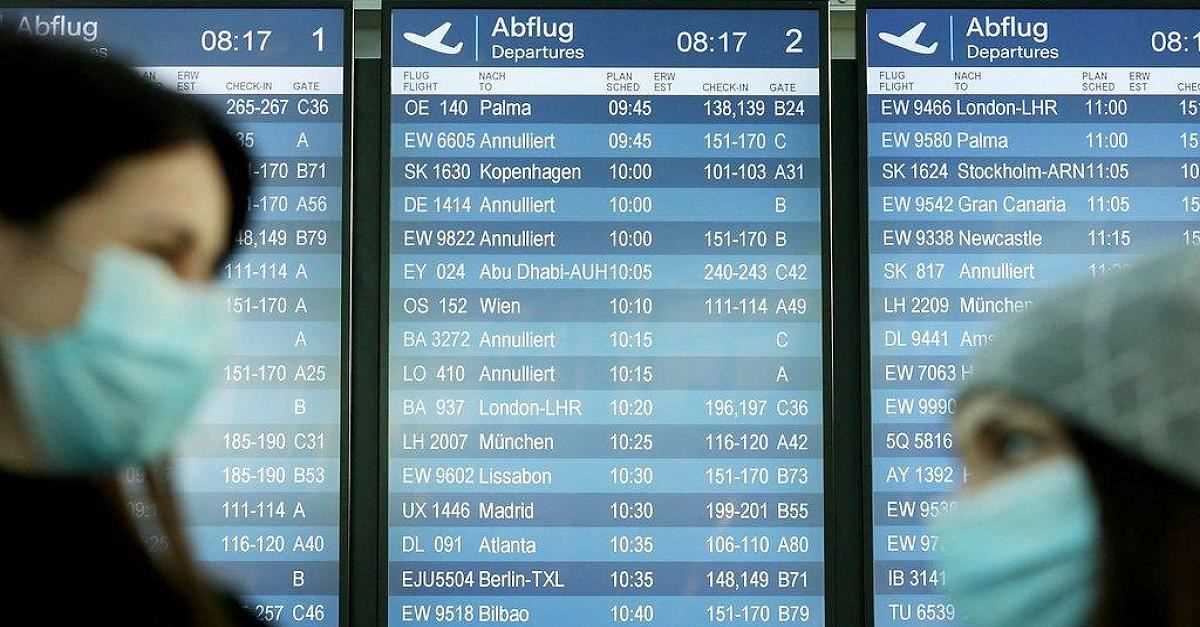New federal government regulation: Forced quarantine for returning travelers – what that means for you
From abroad back to everyday German corona life – it shouldn't work that way soon. Anyone returning from a multi-day trip abroad should go straight to home quarantine. It remains to be seen whether the federal states will implement all of these recommendations.
Anyone returning to Germany from abroad can look forward to two weeks of poor contact within their own four walls. The federal government recommends this regulation to the federal states following a decision by the crisis cabinet on Monday. It is to apply to travelers who have been abroad for several days from April 10. There are exceptions for truck drivers or commuters.
But what is changing now? Even now, people from third countries are only allowed to enter the European Union in exceptional cases. Citizens of European countries are already subject to entry restrictions for Germany, with the exception of commuters or people who live here. The main innovation is that everyone who returns to their place of residence in Germany after a stay of several days abroad must go into a "binding two-week quarantine". And regardless of nationality. If you come by plane or ship, you must announce the route and contact details, the health department at your place of residence should then monitor compliance with the quarantine.
According to the amended Infection Protection Act, an order from the federal government would have been possible. However, the new regulation is only a recommendation from the federal government to the federal states.
PUSH – Coronavirus outbreak in news ticker – Bavarian corona hotspot lifts curfews – Norway announces: "Epidemic under control"
How many planes actually arrive?
At Frankfurt Airport these days, return flights and cargo planes dominate the picture. With the foreseeable end of tourist flights, the program will drop to five percent of the usual level, explains operator Fraport. According to a spokesman, traffic in Düsseldorf is already only five percent. There were still 48 flight movements at Munich Airport on Monday – usually around 1,200 a day at the beginning of the week, it is said. An airport spokesman said the number of travelers at Berlin's Schönefeld and Tegel airports is currently less than five percent of the usual level.
How have the health authorities handled it so far?
There were different regulations depending on the travel area. In certain severely affected countries, pilots had to inform the tower about the health of their passengers before landing. Travelers should fill out disembarkation cards with contact details and location. However, travelers from risk areas, which at times only included parts of a country, were not treated differently.
So far, however, the procedure has differed from state to state: At Düsseldorf Airport, arriving passengers in the terminal are informed about behavior and hygiene recommendations on billboards and monitors. According to a spokeswoman for the State Office for Health and Food Safety (LGL) at Munich Airport, all returnees are asked to go to quarantine for 14 days using the information sheet of the Federal Ministry of Health. The Berlin police informed via Twitter that arrivals from abroad would be contacted and advised of the need for a 14-day quarantine.
And what is going on at the still open land borders?
Federal Minister of the Interior Horst Seehofer (CSU) would like to have extended the controls that already exist at the borders to Austria, Luxembourg, France, Denmark and Switzerland to the remaining border sections. But other cabinet members and some federal states are against it. Among other things, they fear that long traffic jams will form at the borders, which would make it difficult to deliver food or other important goods.
This means that no controls are currently being introduced at the borders with Poland, the Czech Republic, Belgium and the Netherlands. However, the quarantine regulations and the stipulation that most people are not allowed to enter anyway, even for anyone who comes from there – provided the police meet them in the 30 km border area.
Why is testing not quick – instead of ordering quarantine?
To detect the corona virus, a so-called PCR test is usually used. The test in the laboratory takes about four to five hours. Devices for rapid tests are also available, but they can often only be used for a limited number of tests, said Jan Kramer, specialist for laboratory medicine and internal medicine. In addition, they are expensive and costly. For Jonas Schmidt-Chanasit, virologist at the German Center for Infection Research, the problem is rather that the immigrants have to be tested several times to be sure that they are not infected.
Does the isolation make sense for returnees?
The virologist Schmidt-Chanasit believes the recommendation makes sense with regard to the different ways of dealing with the pandemic abroad. “We know our measures in Germany and how they are implemented. We don't know about other countries. ”The quarantine could also prevent people from traveling abroad and thus prevent further chains of infection. In Germany, one is now entering a phase in which imported cases are increasingly contributing to the course of the epidemic, said Hajo Zeeb, epidemiologist at the Leibniz Institute for Prevention Research and Epidemiology. However, Zeeb sees difficulties in the practical implementation of the recommendation – for example, if a large number of travelers return at once and have to travel to different places of residence in Germany.
Complete statement in the video: Merkel comments on corona measures
cba / with dpa
